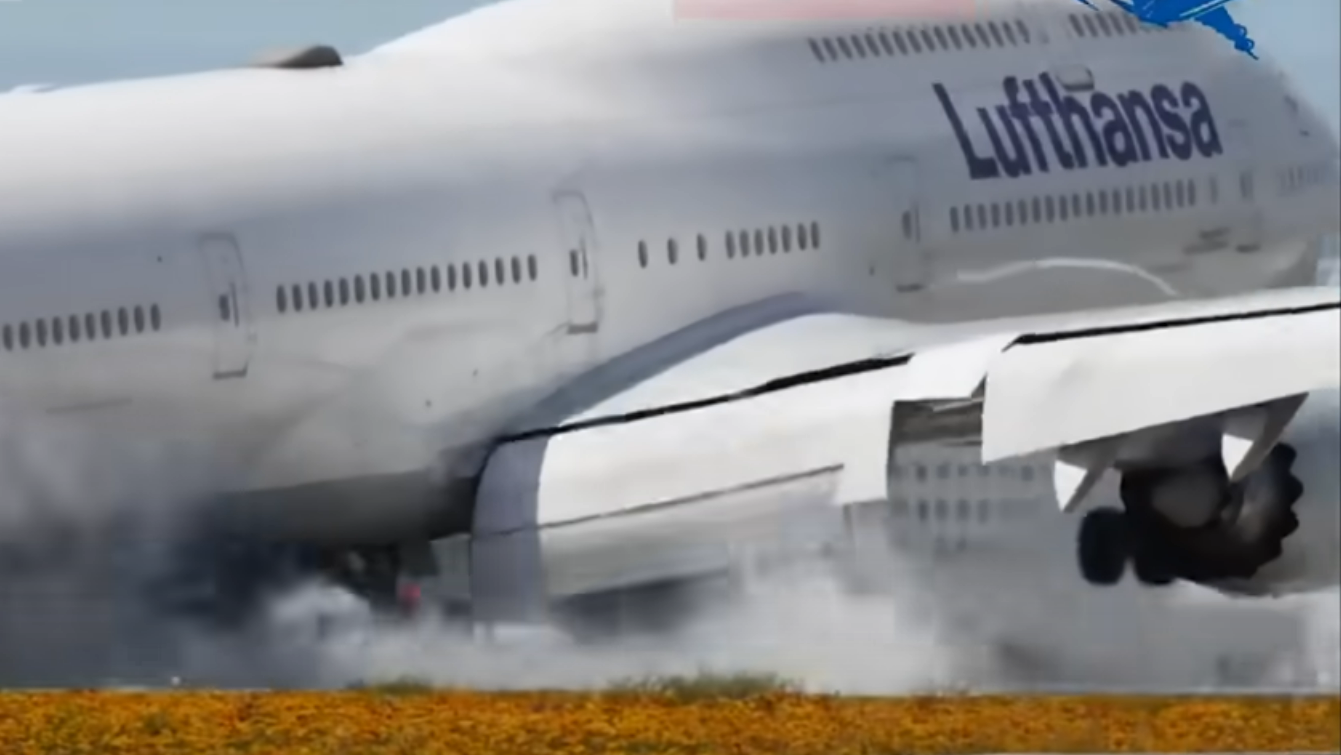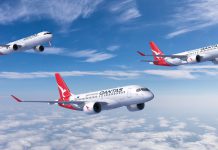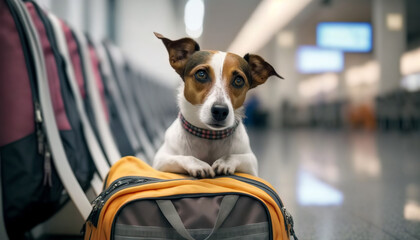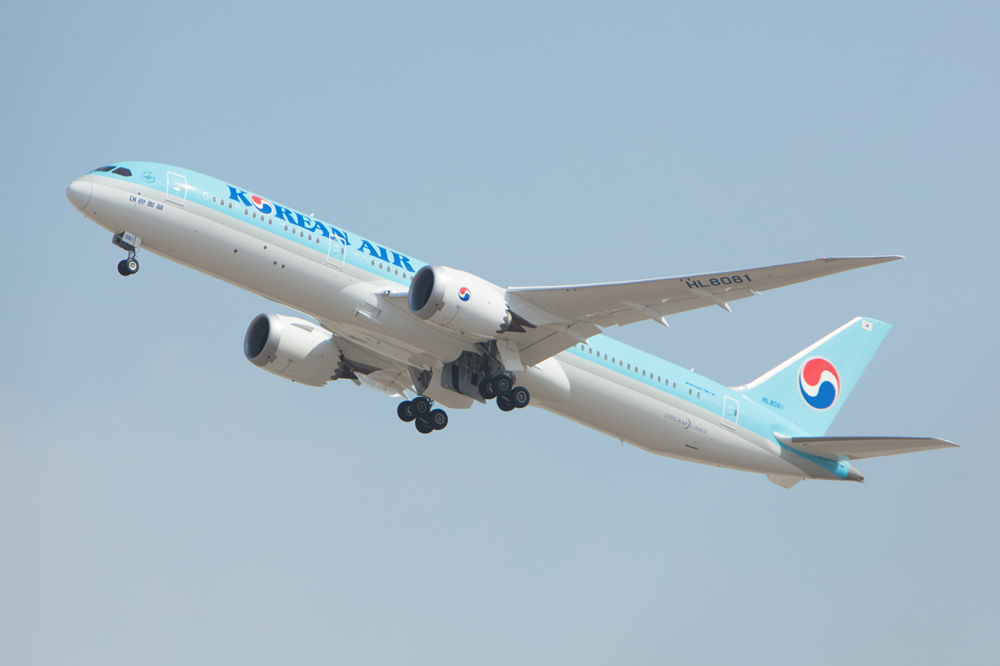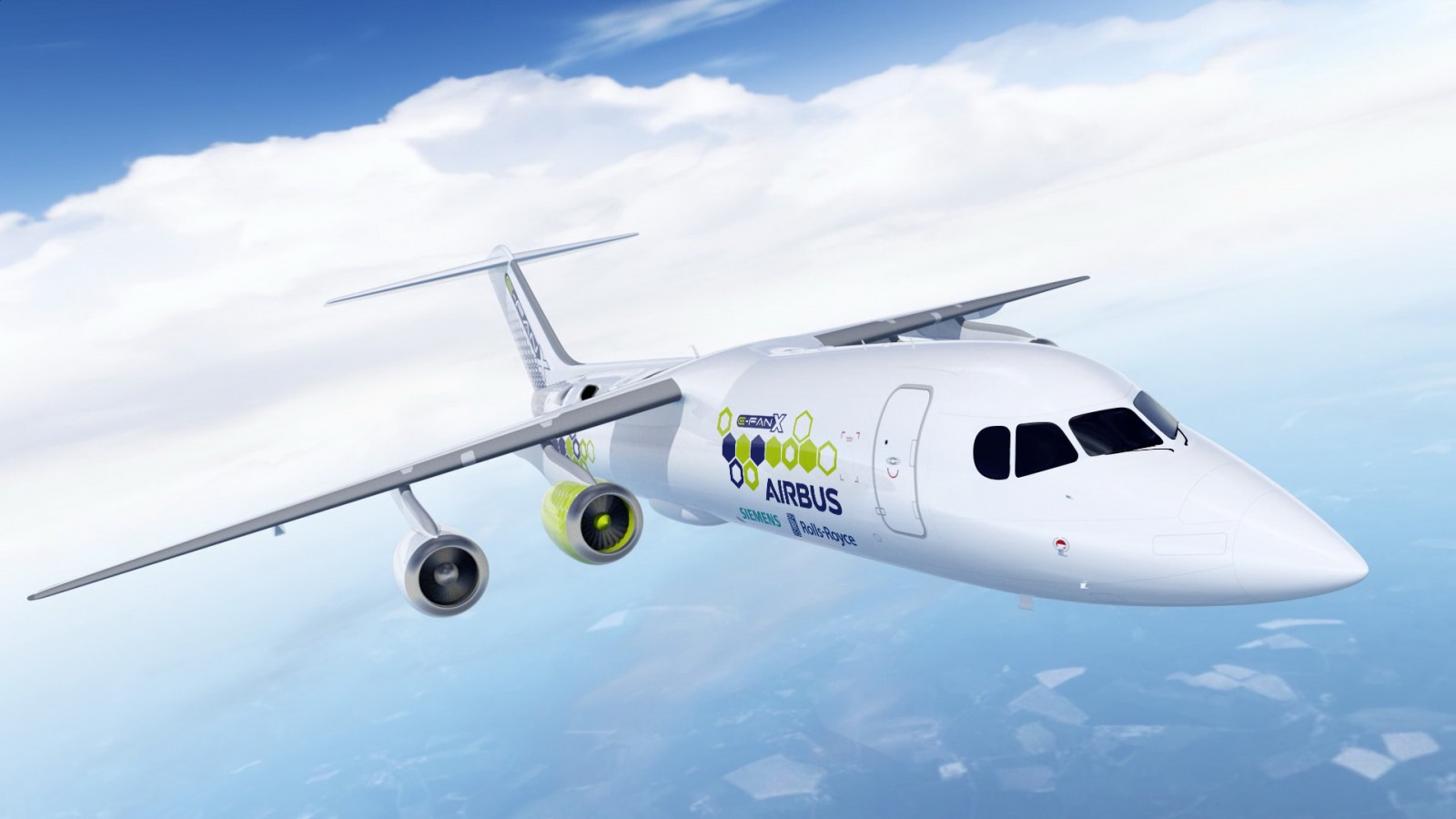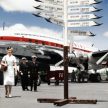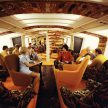Airbus, Rolls-Royce, and Siemens have boosted efforts to develop a hybrid-electric passenger plane with a partnership aimed at seeing a single-aisle demonstrator aircraft flying in 2020.
The companies plan to base their E-Fan X hybrid-electric technology demonstrator on a Bae 146 flying test bed, with one of the aircraft’s four engines replaced by a two megawatt electric motor.
They expect to replace a second engine once the system’s maturity has been proven.
Under the deal, Airbus will be responsible for overall integration and control architecture of the hybrid-electric propulsion system and batteries, and its integration with flight controls.
Rolls Royce will be responsible for the turbo-shaft engines, two-megawatt generator and power electronics while Seimens will deliver the electric motors and associated systems.
Airbus and others have been working on electric flight for some time. The European aerospace giant showed off its two-seater electric plane, the E-Fan “Plus”, at the Oshkosh air show in 2016.
The manufacturer sees the E-Fan X project as an important step in making electric flight for commercial aircraft a reality.
“The lessons we learned from a long history of electric flight demonstrators … will pave the way to a hybrid single-aisle commercial aircraft that is safe, efficient, and cost-effective,” Airbus chief technology officer Paul Eremenko said in a joint release. “We see hybrid-electric propulsion as a compelling technology for the future of aviation.”
Others chasing the electric dream include a Seattle-based start-up backed by Boeing and JetBlue, Zunum Aero, which aims to create a commuter aircraft seating 12 people by 2022.
Zunum is targeting an aircraft with a range of more than 700 miles and operating costs of 8 US cents a seat mile.
Other ventures, including Israel’s Eviation, are looking at smaller aircraft.
The European plane-maker says the E-Fan X demonstrator will explore the challenges of high-power propulsion systems, such as thermal effects, electric thrust management, altitude and dynamic effects on electric systems and electromagnetic compatibility issues.
It will focus on issues such as performance, safety and reliability in a bid to boost the technology and establish future certification guidelines for electrically powered aircraft.
The E-Fan X is part of attempts by manufacturers to produce more environmentally friendly and efficient aircraft capable of meeting tough climate goals.
The European Commission’s Flightpath 2050 Vision for Aviation calls for CO2 emissions to be reduced by 60 per cent, NOx cut by 90 percent and noise slashed by 75 per cent.
Airbus says these goals cannot be achieved with existing technologies.
Siemens and Airbus have also partnered on a air taxi project called CityAirbus, a vertical take-off aircraft capable of carrying up to four passengers and powered by eight 100-kW engines.

Testing on the propeller and duct system has already been conducted and the partners were hoping for test flight by the end of 2018.
Airbus hopes the system will ultimately carry passengers over congested megacities to destinations such as airports or train stations.


